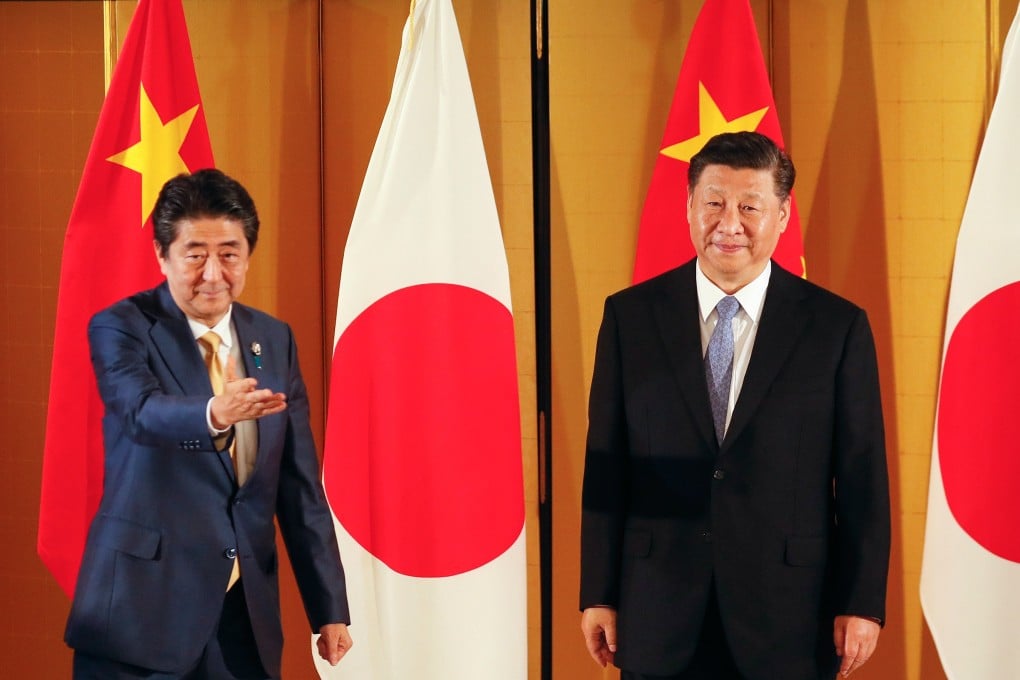China and Japan seek to take relationship to ‘next level’ as Xi Jinping state visit confirmed for spring
- Chinese president meets Prime Minister Shinzo Abe ahead of G20 summit in Osaka, saying he hopes to strengthen ties further

China and Japan moved to take their relationship “to the next level” on Thursday as the leaders of the two countries met before the G20 summit in Osaka and confirmed that Chinese President Xi Jinping would make a state visit next spring.
Following talks with Prime Minister Shinzo Abe, Xi said that the relationship between the two countries had improved in a way that had been “rarely seen” in many years and described the state visit as a “good idea”.
“I think that the Sino-Japanese relationship is at a new historical starting line. I would like to strengthen the high-level strategic leadership together with the prime minister, and work together to build a Sino-Japanese relationship that meets the demands of the new era together,” he said.
Abe extended the invitation to visit “around the time of the cherry blossoms”, saying: “I would like to welcome President Xi as a state guest to Japan, and hope to further elevate ties between Japan and China to the next level.”
Abe also told Xi that he wanted to elevate ties with China to create a new era for Asia’s biggest economies, as China celebrates the 70th anniversary of the founding of the People’s Republic in October while Japan has just entered the Reiwa era following the accession of the new Emperor Naruhito.
The prime minister said their relationship would be developed according to three principles: the shift from competition to cooperation, developing free and fair trade and ensuring there was no threat between neighbours.